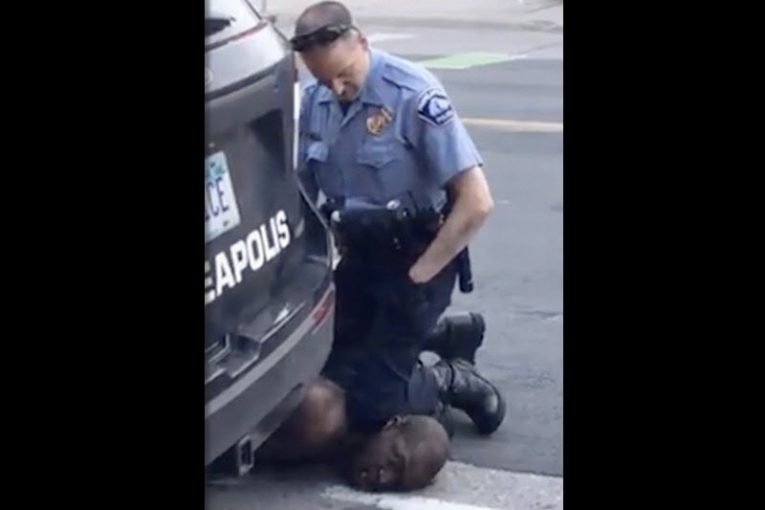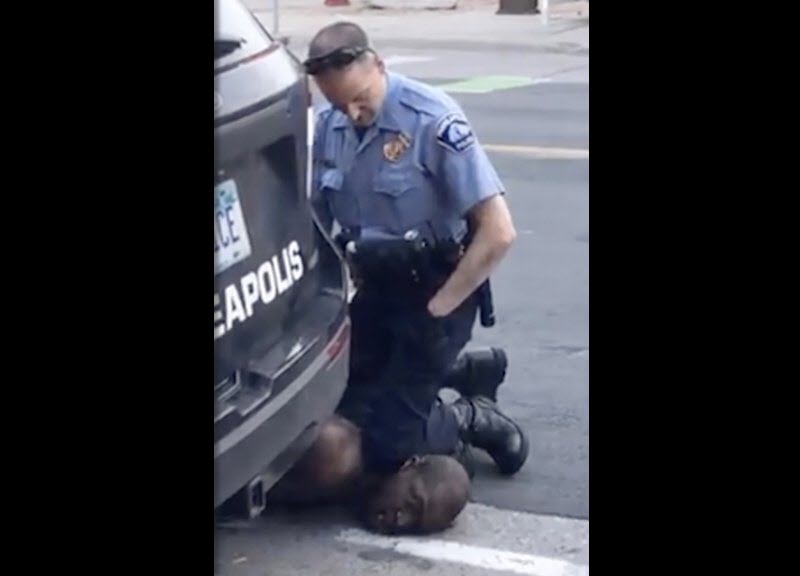

By Roxanna Jarvis and Stephanie Boulos
MINNEAPOLIS, MN – The 10th day of ex-cop Derek Chauvin’s trial for allegedly murdering George Floyd began Friday with Judge Peter Cahill announcing he will allow jurors to hear some evidence related to a separate Floyd arrest in 2019.
Later Friday, jury selection proceeded and the 13th juror was selected—the judge said he wants 15, 12 regular jurors and three alternates.
Regarding the judge’s finding, only a portion of the video from the officer’s body cam from the 2019 arrest is allowed to be shown to jurors—the judge ruled that any arguments relating to emotional behavior are not permitted.
Emotional behavior in the cases, according to Judge Cahill, does not matter as “it is the behavior that the officers in both cases were required to deal with.”
Judge Cahill called the arrests in May 2019 and on the day of Floyd’s death “remarkably similar,” and claimed that it is only medical evidence that should be heard. “The whole point here is we have medical evidence of what happens when Mr. Floyd is faced with virtually the same situation.”
In addition to medical evidence, Cahill allowed a photo of a pill cracked between the backseat of a squad car, which had Floyd’s saliva and DNA on it.
Cahill also denied the defense request to delay the trial or for a change in venue, moving the trial outside of Minneapolis, because of the news of the $27 million settlement with Floyd’s family. Cahill believes that pretrial publicity will continue no matter how far into the future they move the trial.
Regarding the request to change venue, he said, “I do not think that would give the defendant any kind of a fair trial beyond what we are doing here today,” adding, “I don’t think there’s any place in the state of Minnesota that has not been subjected to extreme amounts of publicity in this case.”
After such decisions, the court took a short break and began the arduous task of finishing picking a jury—they’ve spend most of two weeks doing that.
Juror No. 96, a woman, eventually became the 13th juror to be seated.
The woman, who claims to be an animal lover and advocate for affordable housing, works in customer service and saw clips of the bystander video of Chauvin kneeling on Floyd’s neck.
In the questionnaire by the court she completed months ago, she described several bystanders repeatedly asking Chauvin to get off of Floyd’s neck. “This restraint ultimately was responsible for Mr. Floyd’s demise,” she wrote.
When asked by Chauvin’s defense attorney Eric Nelson why she believed so, she responded, “It’s just my opinion based on the video.” Just like all other jurors selected, she pledged to set aside her assumptions and make an opinion on only the evidence presented in court.
In her questionnaire, the woman also noted that she viewed Chauvin differently from the other officers involved in Floyd’s death, having a somewhat negative opinion of him. “I feel like he took a different role in the situation versus the other officers…more like a leader.”
Regarding Floyd, she put her opinion of him as “neutral,” explaining that she did not know Floyd’s circumstances. She also expressed sadness “that a person’s life was lost over a counterfeit $20 bill” and that “there could have been a different outcome.”
Overall, she agreed with both the Black Lives Matter and Blue Lives Matter movements. “I feel like their cause is to protect Black lives and bring issues to light,” she said referring to Black Lives Matter. As questioning continued, she communicated her respect for officers and the need for them.
The woman strongly disagrees that Minneapolis police officers are more likely to respond with force when confronting Black suspects than white suspects. She believes that it “depends on the situation” and says she has personally never seen it happen.
“If you’re asked to [comply] and you don’t, something needs to happen to resolve the situation. I’m not sure what those additional steps would entail,” she said.
She also believes that Blacks and minorities were treated unfairly by the criminal justice system, explaining her reasoning as an economic standpoint. “I feel like if you can hire a lawyer you have a better chance of getting a fair trial versus if…you don’t have the funds.”
The next two jurors considered, Juror 99 and Juror 103, were both dismissed but for different reasons.
Juror 99 has worked with another police department in Minnesota and has leaned toward believing Chauvin to be innocent following the $27 million settlement. When asked by Judge Cahill if she could be fair and impartial, the woman responded, “I already have my opinion…I’m pretty sure I’m partial.”
Juror 103 was dismissed more on the grounds that her personal company recently received an investment, making her ability to juggle both the trial and work milestones much more difficult.
But she did indicate that the case hit very close to home. “I had a very strong emotional reaction to observing that video,” the woman said.
As the conversation continued, Judge Cahill even pointed out that she seemed to be getting emotional as they spoke. She ultimately told Cahill, “I just feel like I don’t want to be associated with [the case], it’s just [too much].”
After taking a short recess, the jury selection resumed with reviewing Juror 109, the last juror needed in order to complete the jury in the trial of Derek Chauvin.
This juror was asked several questions regarding an ability to remain impartial, even after announcement of the $27 million settlement regarding the death of George Floyd. Juror 109 then proceeded to state that they can remain impartial, but admitted that it was a “dumb” decision taken by the city.
The state made the decision to dismiss potential juror No. 109 on the basis of bias.
The trial picked up with the questioning of Juror 110, who was also excused by the judge following a private conversation.
Then the court proceeded to question a college student, Juror 111, who after explaining his positive view of Floyd and negative opinion of Chauvin, insisted on his ability to remain impartial.
Judge Cahill then announced the court’s intent and hope to select two more jurors and achieve a safety panel of 15, in order to assure having the 12 jurors needed. However, Juror 111 was struck.
To end the day, Juror 113 was questioned and discussed an affinity for music, specifically the guitar, and dogs. Juror 113 also admitted to having a negative view of Chauvin.
In addition, the juror said they would have difficulty trusting witness testimonies from police officers, or anyone with connections to Chauvin. Juror No. 113 was then excused.
This ended the day with the need for two more jurors, which will be reviewed on this coming Monday.

To sign up for our new newsletter – Everyday Injustice – https://tinyurl.com/yyultcf9
Support our work – to become a sustaining at $5 – $10- $25 per month hit the link:
